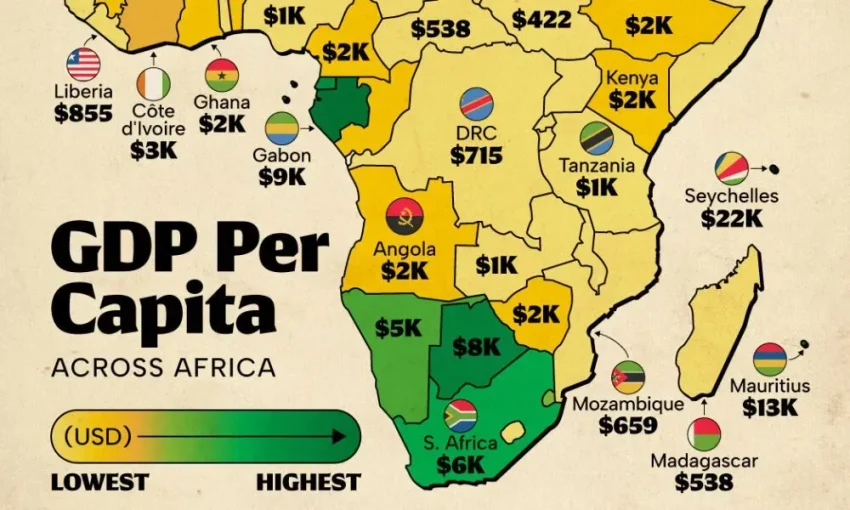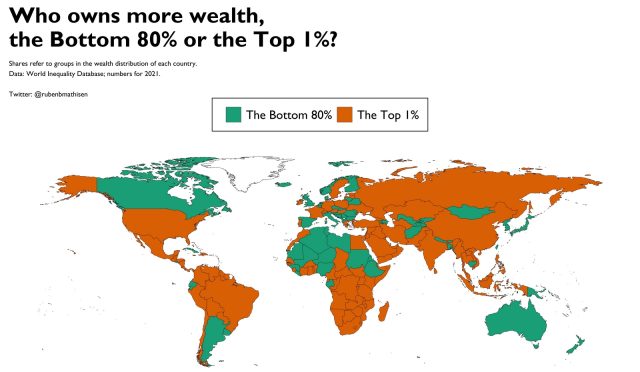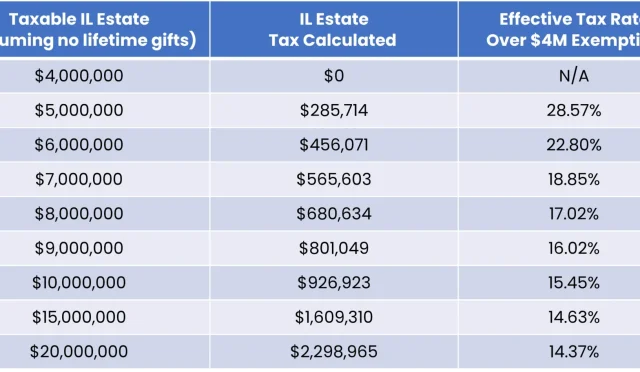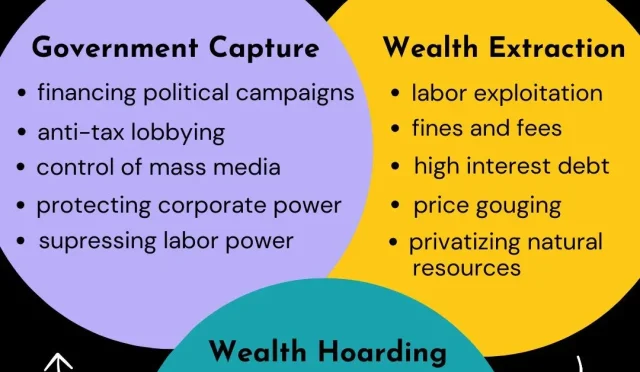African Capitalism represents a crucial evolution of economic practices on the continent aimed at fostering wealth creation and contributing to the broader African economy. With twenty-two billionaires amassing over $100 billion in combined wealth, the potential for substantial poverty reduction in Africa is immense, yet remains largely untapped for the majority. The stark contrast between the growing fortunes of the elite and the stagnant living standards of everyday citizens highlights the urgent need for effective public policy in Africa. By prioritizing good governance and economic statecraft, Africa can transform capitalism into a more inclusive and productive force—one that benefits not just a select few, but the population at large. To truly thrive, African nations must learn from global examples, recognizing that the keys to unlocking wealth and reducing poverty lie in enlightened policies and systems that empower all layers of society.
The term “African Capitalism” encapsulates a unique approach to economic development characterized by the interplay of private enterprise and public governance across the continent. This dynamic system is not just about wealth accumulation but also about addressing systemic barriers that hinder broad-based prosperity for its people. As emerging markets in Africa seek to stimulate growth, the effectiveness of public policies becomes central to crafting an environment conducive to entrepreneurial success and wealth distribution. Furthermore, economic frameworks that facilitate collaboration between the state and the market can lead to a more balanced economic statecraft, ultimately fostering sustainable economic development. Thus, a comprehensive understanding of these relationships is essential for innovators and policymakers alike as they work to reshape the economic landscape of Africa.
The Role of Public Policy in African Capitalism
Public policy is a critical determinant of economic success in Africa. While numerous African nations are rich in natural resources and have a burgeoning entrepreneurial landscape, the lack of cohesive, effective governance stifles prosperity. The current economic statecraft in many African countries often represents a disconnected approach that fails to harness the full potential of capitalism. Without effective public policy, particularly in areas such as education and infrastructure, the benefits of capitalism cannot percolate through the economy, leaving the majority of the population in poverty.
Furthermore, public policy in Africa must address fundamental issues such as resource allocation and economic inclusivity. Wealth creation in Africa requires not only the establishment of markets but also the creation of regulatory frameworks that support small and medium enterprises. Only through a balanced interplay of public policy and private enterprise can Africa shift from a model of crony capitalism—where only the privileged few prosper—to a more equitable economic landscape that supports broader wealth creation.
Frequently Asked Questions
How can African capitalism contribute to wealth creation in Africa?
African capitalism can contribute to wealth creation in Africa by fostering an environment where both private enterprise and effective public policy work hand in hand. By regulating markets and investing in social services, African governments can ensure that wealth creation is not limited to a select few but benefits the broader population, thus addressing poverty reduction in Africa.
What role does public policy play in African capitalism?
Public policy is crucial to the success of African capitalism as it establishes the framework within which economic activities take place. Effective public policy can promote economic statecraft in Africa, enabling governments to support the private sector, create jobs, and facilitate wealth creation that reaches citizens at all levels.
How does African capitalism address poverty reduction in Africa?
African capitalism addresses poverty reduction in Africa by creating structural pathways that allow for economic opportunities for all. Through strategic investments in education, infrastructure, and access to finance, African governments can empower their populations to participate in wealth creation, thereby reducing poverty levels across the continent.
What are the challenges facing the African economy in relation to capitalism?
The African economy faces numerous challenges in relation to capitalism, such as weak governance, inadequate infrastructure, and limited access to finance for small and medium enterprises. Without addressing these issues through competent public policy, Africa’s capitalist framework may continue to benefit a small elite, leaving many citizens in poverty.
How can economic statecraft improve the effectiveness of capitalism in Africa?
Economic statecraft in Africa can improve capitalism’s effectiveness by aligning governmental policies with economic goals. This includes fostering a secure environment, ensuring energy access, and promoting innovation, which are all essential for creating a productive economy that benefits all citizens, rather than just a wealthy few.
What lessons can Africa learn from capitalist models in other regions?
Africa can learn from capitalist models in regions like the US and China by recognizing the importance of the relationship between state and market. Successful capitalist economies leverage strong public policy to support private sector growth while ensuring that the benefits of this growth are widely shared, which can inform strategies for wealth creation in Africa.
What is the relationship between governance and wealth creation in African capitalism?
The relationship between governance and wealth creation in African capitalism is pivotal, as effective governance establishes the legal and institutional frameworks necessary for markets to thrive. Competent public policy ensures that resources are allocated efficiently, thereby enhancing economic opportunities and fostering a climate for wealth creation across the continent.
Can private capital alone drive economic growth in Africa?
No, private capital alone cannot drive economic growth in Africa. While it plays a significant role, sustainable economic growth requires supportive governance and effective public policy. The private sector needs a stable environment, infrastructure, and regulations that facilitate business operations, which cannot be achieved without active government involvement.
What structural barriers need to be addressed for African capitalism to succeed?
For African capitalism to succeed, it is essential to address structural barriers such as inadequate infrastructure, security challenges, and access to finance. Further investments in education and innovative sectors, as well as reassessing property rights, are critical to enabling broad-based wealth creation and supporting economic statecraft in Africa.
| Key Points | Details |
|---|---|
| Context of African Capitalism | Africa has 22 billionaires with a combined fortune exceeding $100 billion, but wealth inequalities persist. |
| Comparison with Other Regions | Unlike China, which lifted 700 million people out of poverty, Africa struggles to provide basic living standards for its citizens. |
| Role of Governance | Governance and public policy, not just markets, play a critical role in creating broad-based wealth. |
| Issues with Current Framework | Many African governments misapply lessons from socialism, resulting in crony capitalism and lack of productivity. |
| Government vs. Markets | Governments must regulate markets and invest in public services; a symbiotic relationship is necessary. |
| Pathways to Prosperity | Critical challenges include security, energy access, affordable finance, and education investments. |
| The Role of Competent Public Policy | Governments should lead with effective public policies, while businesses should follow as partners. |
Summary
African Capitalism faces significant barriers in creating widespread wealth for its citizens, primarily due to ineffective public policy and governance challenges. The successful integration of markets with competent governance is crucial for building a sustainable economic environment that enables all individuals, not just a privileged few, to thrive. To emulate the successes of other regions, African governments must prioritize structural reforms, ensure security, and foster a skilled workforce, ultimately redefining the capitalist landscape on the continent.








